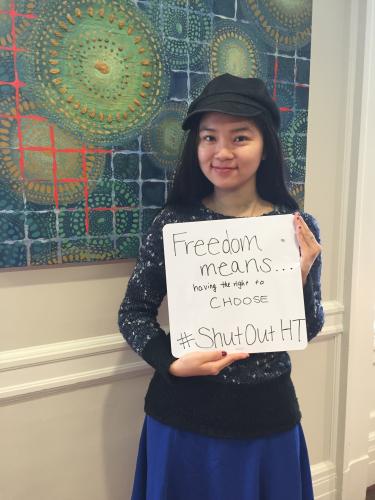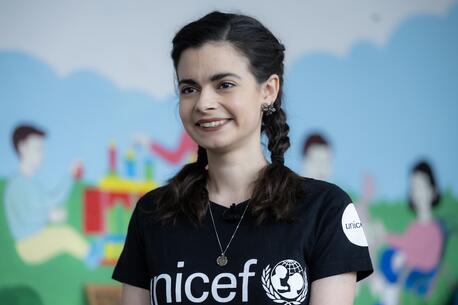Human Trafficking and Sport: Shut Out Trafficking at Brown University
This year, the End Trafficking project has partnered with the National Consortium for Academics and Sports (NCAS) to implement Shut Out Trafficking on ten university and college campuses across the US over the next year, in an effort to raise awareness and promote action to end human trafficking. This blog posts features Shut Out Trafficking at Brown University in Providence, RI, which took place between November 3-6, 2014. This post is part of a blog series on the 2014-2015 Shut Out Trafficking initiative.
Shut Out Trafficking at Brown University was hosted in collaboration with the Royce Fellowship for Sport and Society at Brown and the Brown UNICEF Campus Initiative. Shut Out Trafficking engaged 200 students, faculty, coaches, and staff in raising awareness about the issue of human trafficking on a local, national, and international level, and exploring how sport can be used as a tool to combat issues such as human trafficking. Shut Out Trafficking week at Brown University included a keynote speech given by Dr. Richard Lapchick, a panel discussion, tabling, petitioning, and awareness raising on the Main Green, and a film screening of the documentary, Not My Life, followed by a facilitated discussion.

(pictured: Elaine Zhao, Brown University student and member of Brown UNICEF Campus Initiative)
Below is a reflection on the main event, written by Brown University student and former student athlete, Jessica Harper:
“Earlier this month, the U.S. Fund for UNICEF’s End Trafficking Project and the National Consortium for Academics and Sports (NCAS) brought Shut Out Trafficking to Brown University. The kick-off event featured Dr. Richard Lapchick and a panel of distinguished speakers involved in the field of trafficking as well as sport for development. This event was hosted by the Royce Fellowship for Sport and Society at Brown with support from the Brown UNICEF Campus Initiative, and sought to engage student athletes in particular in the topic of human trafficking in order to inform our campus of this serious global issue. The use of sport for social change is powerful and Dr. Lapchick spoke passionately on the subject.
Dr. Lapchick, a renowned human rights activist and pioneer for racial equality, has worked on an international level through sport and is frequently fondly nicknamed “the racial conscience of sport.” As a former student athlete, it was truly inspiring to hear Lapchick speak so passionately about how sport can be a meaningful vehicle for positive social action. It was really great to see the audience packed full with student athletes from various teams all coming together to hear Dr. Lapchick speak. Lapchick is a phenomenal example of the impact that the sporting world can have on issues of human rights and social justice. He is a man who has dedicated his life to this field and continues to work tirelessly to combat inequities in the United States and internationally, particularly racial and gender inequalities.
The panelists at the event were equally inspiring and shared important perspectives in the discussion of sport as a vehicle for social change and tackling human trafficking. The panel included Sarah Willbanks from the U.S. Fund for UNICEF, David Cohen and Rebekah Conway Roulier from Doc Wayne, Sarah DeCataldo from Day One, a local trafficking victims' service organization, and Larkin Brown from Soccer Without Borders. It was really fascinating to hear about the intersection of sport for development and human trafficking. Prior to this event, I had never encountered these two fields discussed side by side but I left feeling confident and inspired about the future of sport as an instrument with which to combat human trafficking.”


